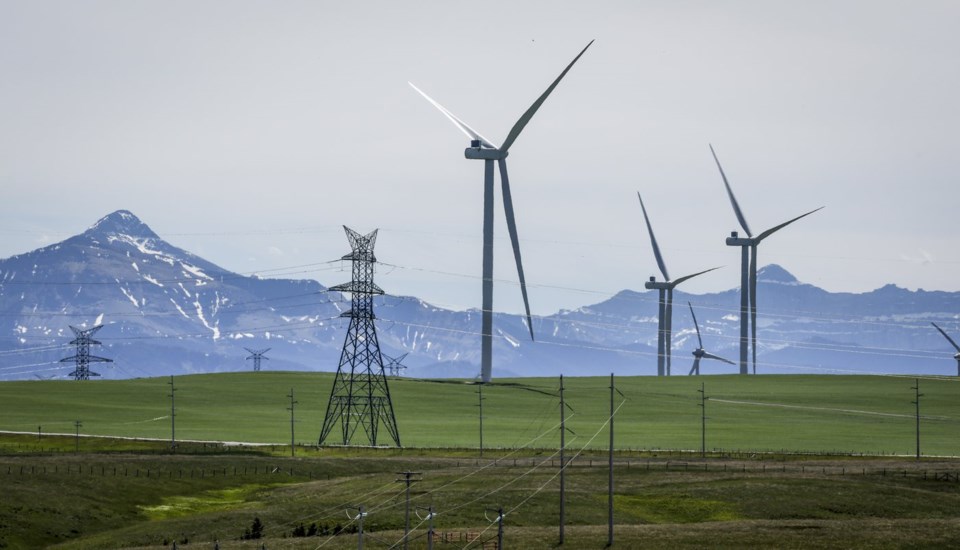Decarbonizing Canada's electricity grid could lead to a significant uptick in mergers and acquisitions in the renewable energy sector, a new report says.
The report, released Thursday by PwC Canada, provides a mid-year update on M&A activity across all sectors of the Canadian economy.
It shows deal flow remained subdued in the first half of 2024, following a challenging year in 2023 that saw declines in both deal volumes and deal values.
But the report also suggests deal activity could pick up again in the next six months, with the renewable energy sector poised to be a potential bright spot.
"The opportunity for M&A will likely increase as we build out (the renewable energy sector)," said PwC deals partner Derek Chu.
In Canada from Jan. 1 to May 31, 2024, across all sectors, there were 952 corporate merger or acquisition deals with a total value of $72 billion, the PwC report shows.
That compares with 1,218 deals with a total value of $85 billion in the same period of 2023, which itself saw a 17 per cent decrease in deal volume compared to the first half of 2022.
M&A activity across all industries has been sluggish recently due to rapidly increasing interest rates, which has led to a valuation expectation gap between sellers and buyers, said Chu.
But as inflation eases and with central banks beginning to cut interest rates, deal-making should start to pick up again, Chu said. In particular, buyers who have been sitting on capital over the last two or three years will be motivated to deploy it once interest rates and financing costs begin to decline.
Chu, whose expertise is in the renewable energy sector, said he thinks the industry will be one to watch. According to federal estimates, about $400 billion in investment in Canada's electricity grid will be needed between now and 2050 to support projected demand growth.
The government's draft clean electricity regulations, which aim to get Canada's electricity grid to net-zero by 2035, are meant to ensure this investment is directed toward greener sources of energy.
Chu said renewable energy projects, such as wind and solar farms, often change hands multiple times between the development, construction and operational phases. A flurry of new green energy development could spark a wave of M&A activity, he said.
He added there will be opportunities for international investors as well, as the amount of infrastructure that will need to be built could vastly exceed the amount of available investment capital in Canada.
"One of the challenges I think we’ll have from time to time is whether there’s sufficient capital to fund all that (capital expenditure)," Chu said.
He said many related businesses will also prosper with an expanding and evolving Canadian electricity grid. While most renewable energy facilities will be owned by infrastructure investors, he said they will likely outsource maintenance, repair and operations services to external providers.
"These renewables-adjacent businesses should be of interest to private equity funds ... many of whom already have their sights set on scalable opportunities in this space," the PwC report said.
This report by The Canadian Press was first published June 20, 2024.
Amanda Stephenson, The Canadian Press

